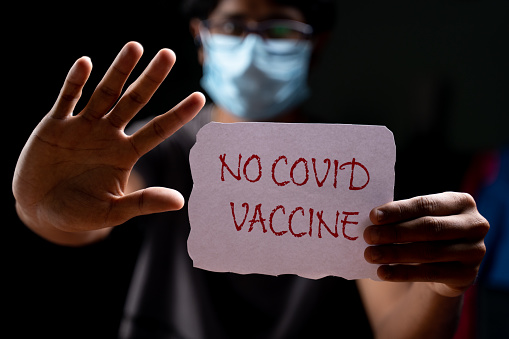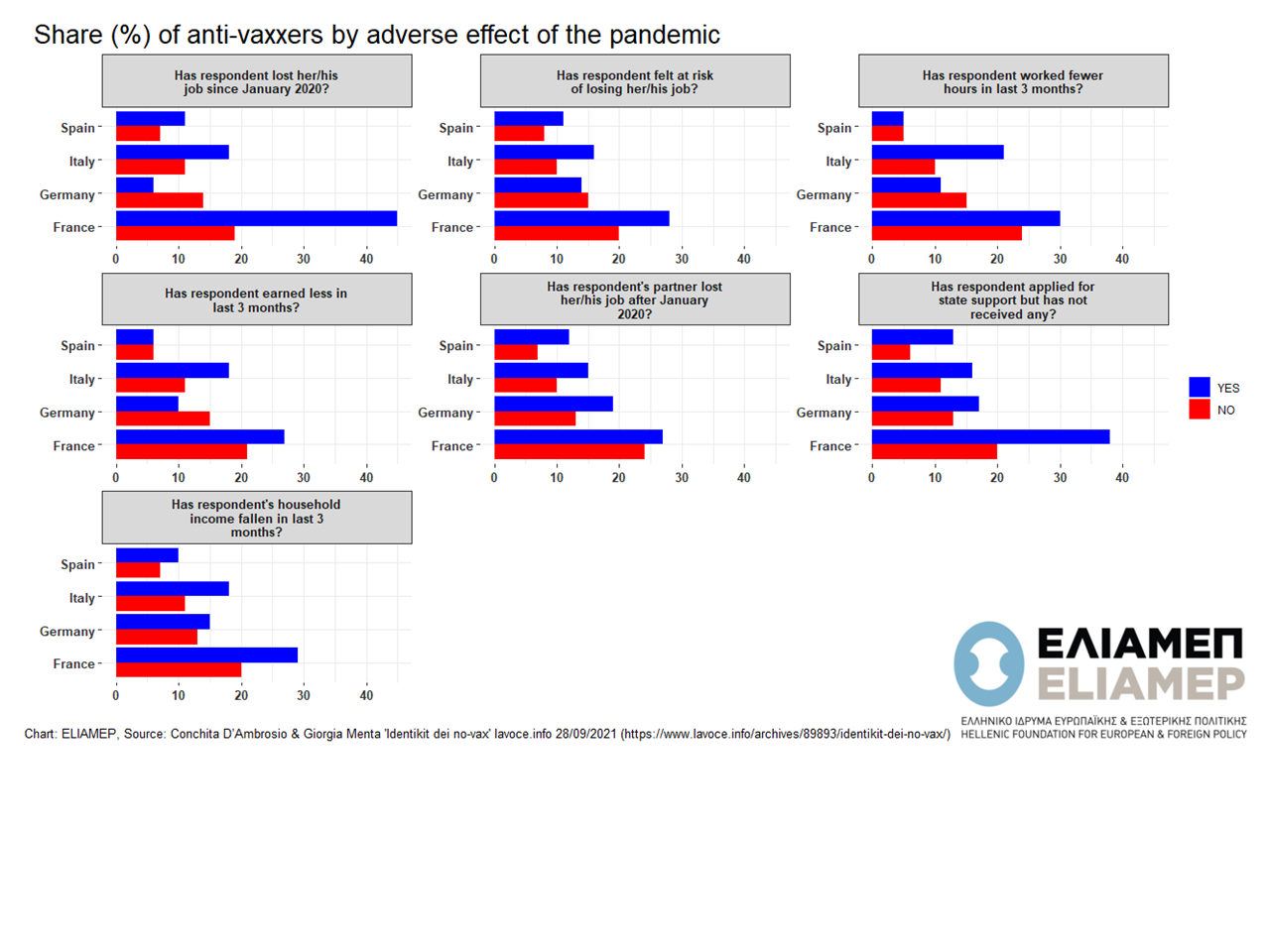In a recent article, Conchita D’Ambrosio and Giorgia Menta, Italian economists working at the University of Luxembourg, presented the results of a survey on the identity of anti-vaxxers in France, Germany, Italy and Spain, conducted in June 2021. Their data derive from the responses of about 700 persons in Germany, and of about 1,000 persons in the other three countries.
The researchers define anti-vaxxers as those who have reported (i) that they have not had a Covid-19 jab, and (ii) that they have no intention of having one. Their share was 7% in Spain, 12% in Italy, 13% in Germany, and 21% in France. The article analyses attitudes to the Covid-19 vaccines in the light of exposure to adverse effects of the lockdowns on employment outcomes and family incomes.
The article demonstrates that refusal to vaccinate is strongly correlated to personal exposure to the adverse effects of the lockdowns: those who suffered job loss and/or earnings loss since January 2020 were significantly more likely to be to hostile to the Covid-19 vaccines relative to those who did not. As shown in the graph, the share of anti-vaxxers in France was 45% among those who lost their job during the lockdowns, compared to 19% among those who did not.
Clearly, more research is needed to clarify the causal relationship at work here. Is the refusal to vaccinate an irrational response to the traumatic experience of losing one’s (or one’s partner’s) job, or of suffering a significant loss of earnings, as a result of the lockdowns brought about to prevent the spread of the virus? Or, alternatively, a third factor (e.g. low education) contributes both to hostility to vaccines as well as to employment in jobs or industries that turned out to be more vulnerable to the Covid-19 lockdowns?
Most likely, a combination of the two factors is at play, even though the relative contribution of each remains unknown for the time being.




